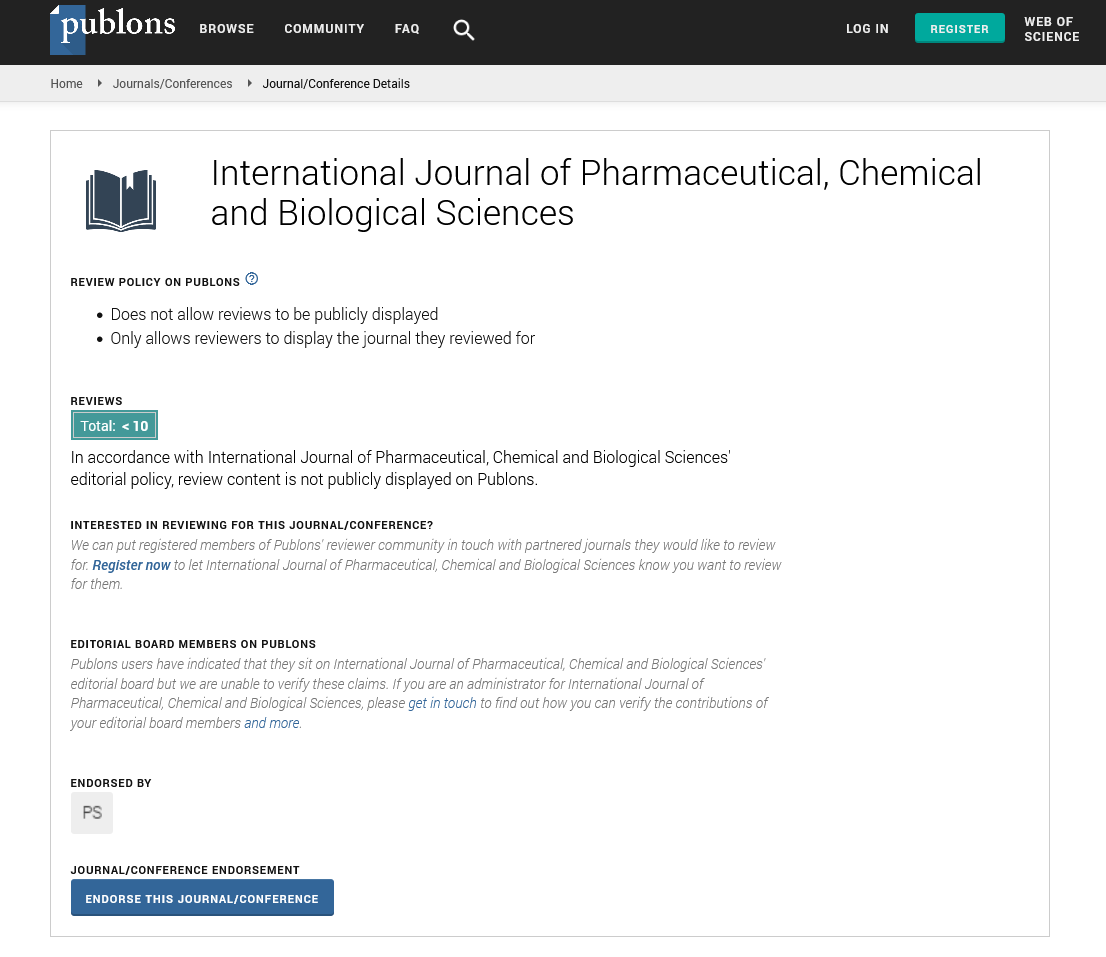Abstract
Author(s): Meerwal P and Jain GC*
Population explosion is one of the greatest problems all over the world especially in developing countries with its inevitable consequences on economic development, public health and environment. Therefore, there is pressing need for control of fertility by encouraging the couples to participate in family planning programmes. Compared with female contraceptive methods male alternatives are limited including vasectomy and condoms. Prevailing situation demands the development of more contraceptive options for males that will encourage more couples to adopt them. Several potential approaches for fertility control have been investigated over a long period including chemical, hormonal and immunological approaches. However, no suitable method has emerged that is effective, reversible and free from side effects. Medicinal plants provide an alternative offer for development of male contraceptives. Numerous herbs have been used historically to reduce fertility in both male and females. The research on medicinal plants for the search of male antifertility agent is being intensified because of their lesser side effects, ready availability and reduced cost. The present review includes a brief account of research reports on medicinal plants with male antifertility activity published between the years 2000 to present. This study provides an information on botanical name, family, parts used,extract used, dose, duration and their possible male antifertility effects in various animals.

